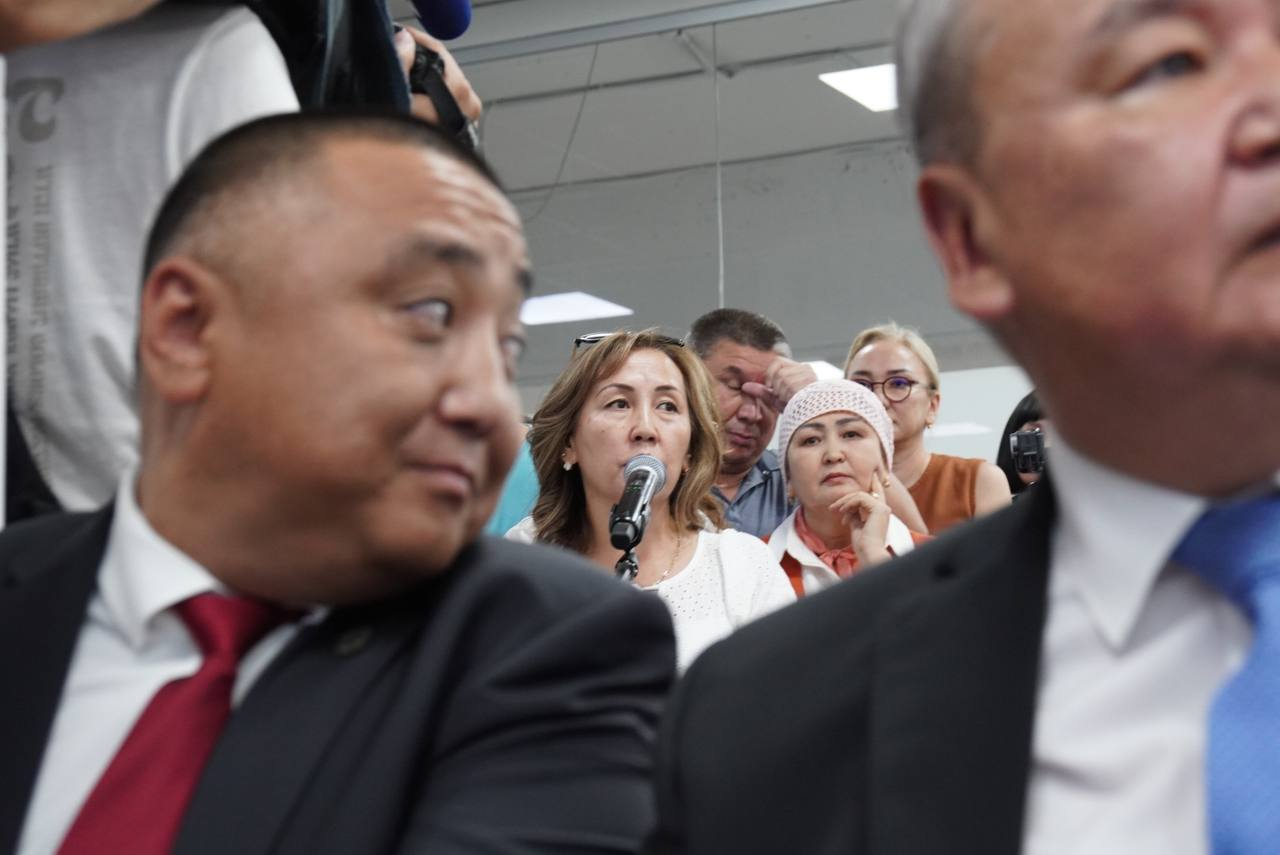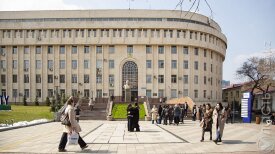Unnamed sources said the arbitral claim against the international consortium developing the offshore oil field of Kashagan had increased to $160 billion, Bloomberg reported on August 10. Previously, the claim was said to amount to $150 billion, but now the government has allegedly also attached accusations that certain deals were “tainted by corruption.” The consortium, which includes Eni, Shell, Exxon Mobil, TotalEnergies, CNPC, and Inpex, as well as state-owned Kazmunaigas, has spent at least $50 billion in the development of Kashagan.
Italy’s Eni shipped a first batch of 20,000 tons of oil from its operations in Kashagan to Europe via the Druzhba pipeline across Russia, the company said on August 13. Despite sanctions restrictions against Russia, European customers have brokered a deal to receive Kazakh-branded oil via Russian pipelines. According to industry sources, the Druzhba route is temporarily cheaper than the Caspian Pipeline Consortium from Atyrau to the Black Sea.
Bloomberg sources said on August 14 that Kazakhstan’s government is planning fresh taxes on raw materials exports (including metals and fuel) in an effort to limit a growing budget deficit. Because of a long-standing practice of planning budget revenues only in the short term, Kazakhstan has incurred a massive deficit, which could burst into a crisis of public finances.
In an interview with Bloomberg on August 16, Serik Zhumangarin, Kazakhstan’s deputy prime minister and minister of trade, said that Kazakhstan “won’t blindly follow the sanctions [regime]” as imposed by western countries on Russian goods and companies. Kazakhstan’s government has tried to avoid falling under secondary sanctions for helping Russia circumvent trade limitations.
The Anti-Corruption Agency said on August 14 that its campaign to return illegally-withdrawn assets to the state had reached around 1.1 trillion tenge ($2.7 billion). Around 75% of this came from assets owned by Kairat Satybaldy, the nephew of former President Nursultan Nazarbayev, according to additional details shared by the General Prosecutor’s Office on August 12 and 15. On August 16, Satybaldy’s prison sentence was converted into a probation period with limited freedom due to his voluntary restitution of embezzled assets, a court in Oskemen said. After 2.5 years since the start of this campaign, details are finally emerging about who exactly returned what. A full, transparent list remains missing.
Qazaqgaz, the state-owned gas transport company, said on August 12 that it filed an application to acquire the assets of AsiaGaz Chundzha, a gas transport company previously owned by businessman Kairat Boranbayev. In October last year, Boranbayev returned a number of assets to the state within its campaign against corruption. Soon thereafter, Boranbayev’s prison sentence for embezzlement was converted into a probation period with limited freedom.
Public discussions on the controversial topic of building Kazakhstan’s first nuclear power plant took place in Konayev on August 14 and in Almaty on August 16. The government had instructed local administrations to hold public discussions on the topic ahead of a referendum planned for “this coming autumn.” Little advertised, these public discussions seem to be a part of the government’s performative ritual that is supposed to showcase transparency and openness.
Kanat Sharlapayev, the minister of industry, said on August 13 that the government will establish a registry of domestic manufacturers by the end of the year. By signing up to the registry, companies would be able to access several government benefits.
The Constitutional Court’s press service said on August 13 that it dismissed a claim questioning the legitimacy of publishing assets owned by former civil servants. The government promised to progressively open up the books of current and former civil servants in an effort to enhance transparency and curb corruption. While we wait for the government to catch up, we have already outlined what we learned from a data leak about Kazakhstan’s civil servants and their family members owning property in Dubai.
Поддержите журналистику, которой доверяют.








